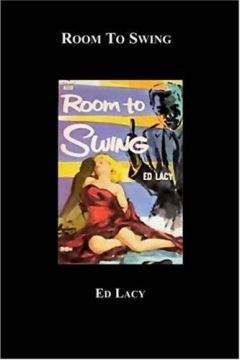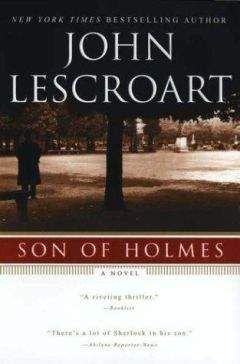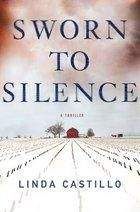Ed Lacy - Room To Swing
На электронном книжном портале my-library.info можно читать бесплатно книги онлайн без регистрации, в том числе Ed Lacy - Room To Swing. Жанр: Прочее издательство неизвестно, год 2004. В онлайн доступе вы получите полную версию книги с кратким содержанием для ознакомления, сможете читать аннотацию к книге (предисловие), увидеть рецензии тех, кто произведение уже прочитал и их экспертное мнение о прочитанном.
Кроме того, в библиотеке онлайн my-library.info вы найдете много новинок, которые заслуживают вашего внимания.

Ed Lacy - Room To Swing краткое содержание
Room To Swing читать онлайн бесплатно
“Nothing, except that I have to leave Bingston.”
“Why?”
“Far as the killing goes, I'm running in circles here, going no-place. Bingston isn't even a good hideaway; everybody in town knows I'm here, even about my car 'breaking down.'”
“Where will you go?”
“Back to New York, I guess. I've thought of something that needs looking into there.”
“But they're looking for you in New York. Touie, why leave at all? People know about you here because you're a stranger. If you remained here and found a job, as Jones, you'd soon be forgotten—I mean, wouldn't stand out. As you said, the New York police are looking for 'a' Negro. Once you became a part of the community here, you'd be safe. They certainly aren't looking for 'a' Negro in Bingston.”
The woman in the bakeshop knocked on the window.
“No dice. I phoned somebody in New York this morning; the police already know I'm the Negro. In time they're sure to contact Bingston, if they haven't already. Main reason I came here was to find the killer. All I've found was that Thomas was a mixed-up kid.”
“If the police know about you, then to go back to New York seems—“ She turned sharply and nodded at more knocking on the window. “When are you leaving?”
“Thought I'd go out to the farm and pick up my car, leave now.”
“Touie, at least wait until I come home at five-thirty. Let's talk about this. All right?”
“Okay.”
“Tim should be in soon, and I'll ask about his uncle, and Thomas' father. I have to run now. Not a customer in the store and she's wearing her knuckles out on the window. See you at the house in about an hour.” She went back into the shop.
I headed for the Davis house but I was too nervous to sit around. I turned off at the nearest side street, drove aimlessly. I'd better get rid of the Jaguar. Take it from the farm, so they wouldn't get into any jam, if I was caught, ditch it in some river or lake. Although it would break my heart to do that. In New York I could get a room in the coloured section of Brooklyn, or the Bronx—although I didn't have much money, in fact no money if I took a train back to New York. Maybe I could get a job, anything, that would keep me eating for a week or two, while I checked on the stooge, Kay's boss, and Thomas' girl in the cafeteria. Damn, if I could only sell the Jag, be enough dough to keep...
I passed a dirt road and a dirty white sign on a metal post that read: beech road. Backing up, I turned into the road. It seemed to be all woods until I passed a few new and neat-looking ranch houses, and after another couple hundred yards a weather-beaten shack with a new tarpaper roof, the remains of a fence. A coloured kid about twelve was sitting in the yard with his back to me. I stopped the Chevvy and walked back to the yard. Suddenly there was a coughing sound, exactly like a mortar shell going off. I looked around wildly, was so startled I nearly hit the ground.
The kid was watching a bright red rocket about a foot long hissing up through the air. It went a few hundred feet high, did a cockeyed somersault, then came spiraling down to the ground at the boy's feet.
“What's that?”
He jumped as he turned to stare at me, a solemn-faced youngster in a worn sweater and torn dungarees and patched shoes. “Whatcha think it is? It's a rocket.” He touched a small plastic stand. “This is my rocket launcher. Pip, isn't it?”
It was a crazy scene: the shack that probably hadn't changed since it was built before the Civil War, and the sleek little rocket.
He opened a paper bag, showed me some white powder. “I put a charge of this atomic fuel in the launcher, add water, and when the reaction reaches its prime I release the rocket. Came in the mail today. Cost me four bucks but— Hey, Mister, you live around here?”
“No. Does Mrs. Mamie Guy live on this road?”
“You bet. Keep going and you'll see a house on the other side of the road. Be lot of clothes hanging on the lines.” He lowered his voice. “You know my folks?”
“No.”
“Well, if you should meet them, don't say anything about this rocket. I worked extra hard and saved to buy it, but my Pop would whale me if he knew. Someday I'm going to build a big one, take me to the moon.”
“What's so special on the moon?”
He looked at me with disgust, then sat down with his back to me, said, “Blast off, Mister.”
I headed toward the car. In a minute there was the slight cough again and the rocket shot high into the air, flying in an arc. It came down several hundred feet away in the leaves of a tall young tree. The kid ran over and started throwing stones at it.
“Why don't you climb up after it?” I called out.
“It's Pop's new pear tree. May break and then I'd really get it. Mama's due home in half hour. I got to work fast.”
I walked over to him. The tree was about a dozen feet high, the trunk a few inches thick. I grabbed the trunk and shook it. The rocket fell to a lower branch. I shook it again but it didn't budge. “How much do you weigh?”
“Sixty-three pounds.”
“Think you can hold yourself straight if I lift you?”
“You bet.”
“Now hold yourself rigid, or you'll fall and break both our necks.” I squatted, grabbed him around the waist and took a deep breath—as if getting ready to jerk and press a bar-bell. I got the kid up to my chest, then held him up at arm's length. He reached up and pushed the rocket out of the branches. I dropped him to my chest, then to the ground.
“Gee, you're strong, Mister.”
“Launch that in a field the next time,” I said, brushing my coat, wiping the sweat from my face.
He followed me back to the car and as I drove off he asked, “What's your name?”
“Captain Video,” I called back and had to grin. Big deal: the murderer was captured knocking a rocket ship out of a pear tree.
The Guy house wasn't far down the road, and a copy of the other shack except it was bigger and in better condition. Clotheslines zigzagged all over the yard, with a few sheets swaying in the wind like sails.
A thin dark woman came to the door. Her hair was uncombed and her face sweaty. She could have been thirty, or forty-five, the work-worn look all over her. “My name is Jones. Mrs. Simpson told me you knew Porky Thomas,” I said, going into my pitch about being a true-crime writer.
“I have nothing to say. I told them television people once, I ain't got time to made mud fly. I don't believe in snooping into other people's lives.” She shut the door.
At least she didn't know I was staying at the Davises' or that I had a Jaguar. “Mrs. Guy, I'm not with any TV studio. I only want to ask a few questions.”
“Ask somebody who has time for loafing. I have work to do.”
“Can I talk to your husband?”
“That's up to him. He ain't home now.”
I stood there for a moment, lit my pipe. Walking back to the car I saw the rocket kid watching me. He said, “Aunt Mamie is cross on the days when she does her heavy washing. You want to talk to her real bad, Mister?”
“Yeah.”
He called out, “Aunt Mamie.” She came to the door a moment later. “What you want, Kenneth? You know I'm rushed today.”
“This is a nice man, Aunt Mamie. I was stuck up in a tree and he stopped his car to help me. Yes he did.”
She wiped her wet hands on her gray dress. “I'm wasting more time not talking to you. All right, come in, if you want.”
The kid winked at me. “Guess I'd best go home and hide my rocket good. So long, Mr. Video.”
The kitchen of the shack had several irons heating on the big coal stove, and smelled of damp starch. She pointed to a chair between two wicker baskets of clothes, said, “You can sit there. Only reason I'm talking to you is because you're coloured. That's the truth. I didn't even open the door to those TV people. Ought to mind their business, that's what. I hear Porky was killed.” Her voice was as thin as her body.
“That's what I want to ask about, Mrs. Guy.”
“You wasting my time. He used to deliver laundry for me, but that was a long time ago, when my Edward was born, and he's going on ten now. I ain't seen hide nor hair of Porky since then, and just as well.”
“Mrs. Simpson told me he stole some shirts from you, slapped your face.”
“That old talking machine. Yes, he did take two silk shirts from a bundle he was delivering. And he did slap me when I accused him of it. But my husband took him down a peg, and that was all. Porky even continued working for me for a time, then he quit me.”
“Did he have any enemies in Bingston—before the business with May Russell?”
She shrugged her bony shoulders. “None special. What you driving at, Mr. Jones?”
“I thought someone from around here might have gone to New York and killed him.”
“Folks here got more to do with their time than that. Lot of people didn't like him. I never trusted him, myself. But nobody would kill him. That's all I know. I got ironing to do. All these damn sheets got to be ironed so my husband can take them over to Kentucky after supper.”
I stood up. “Thanks for your time. People come all the way from Kentucky to give you laundry?”
“Shucks, all the way is less than twelve miles. I got all the work I can handle. Nobody does clothes like Mamie Guy. Especially delicate things. I never tore anything in my life. Them silk shirts Porky took a liking to, they was from a Kentucky family. Tell you the truth, the shirts was too small for him. He took 'em out of spite and meanness, get even with his cousins. It was McDonald shirts.”
“I didn't know he had any relatives,” I mumbled, the name McDonald hitting me like a Joe Louis left.
Not many people know the McDonalds is sort of distant cousins to Porky, on his mother's side, of course. I never heard about it myself, till he took them shirts. They never had no use for either him or his mama, never would even recognize 'em. Shame too, because they always been well off, might have helped the boy when he was running around hungry and raggedy. McDonalds been having a big store over in Scotville far back as I can recall.”
“Is one of the McDonalds named Steve?”
“There's Stephen and Ralph, and the girl, Betty. They all left except Ralph. He took over the store when his daddy had a stroke.”
“What's Stephen doing?”
“Now, mister, how would I know? I only do their washing, don't have tea with 'em. They all went off to college. Betty is married and living someplace out West. Like I said, Ralph, he's married and running the store. Stephen, he ain't been around since after the war. Look, I got to catch up on my work. I got supper to make, too.”
“I won't keep you, Mrs. Guy. Is there a phone around anyplace I can use?”
“Take a right at the next fork. Come to Mr. Jake's gas station. He lets coloured use his phone.”
I thanked her again, sincerely thanked her, then sped toward the gas station like that well-known bat. As Ollie would say when a horse came in for him, I was getting “well.”
“Mr. Jake” turned out to be an old white man with liver spots on his face, and a game leg. When I asked if I could use his phone, he nodded toward a wall phone inside his office, said, “That's what it's there for, if you got a dime.” I told him to fill the tank, see if I needed any oil—to keep him busy. Scotville was only a fifteen-cent call, and when I got the McDonald store I asked for Stephen and a man said, “I'm Ralph McDonald, his brother. Who is this?”
“I was with Steve in the army—during basic training. I happened to be driving through and wanted to say hello to him.”
“Steve hasn't been home in several years. He's a writer in New York city, doing very well.”
“Come to think of it, he always talked about wanting to write. Happens I'm on my way to New York—how can I get in touch with Steve there?”
He told me to call him care of Central TV and wouldn't I like to drop over to his house now for a drink and supper? I said I'd take a rain check but was in a big rush at the moment, and nearly laughed out loud thinking what would happen if I should stick my dark face in the McDonald doorway!
I said good-by and hung up. He hadn't even asked my name. I was singing as I raced back to the Davis house. If I left at once, I could be in New York by tomorrow afternoon, but in the Jag I'd be as conspicuous as if I were wearing a red suit. A train would be faster and safer. When I solved things I could come back for the car, and if I didn't, I sure couldn't take the Jag with me.
Mr. Davis was sitting in the living room, feet in slippers, smoking a cigar and reading a magazine. I told him, “I've phoned Chicago and they have to send to England for the pan to my car. So I'm leaving now. I have a supper-club job set for Chicago, and I'll return in a few weeks for the car, when I get the parts. What do I owe you?”
“I'll have to ask Mama. Maybe we owe you; she tells me you've hardly eaten here. All rested up now, Mr. Jones?”
“Rested? Sure, sure. Is there a bus leaving here soon?”
“The Cincinnati bus leaves downtown at six fifteen. Should be plenty of trains from there to Chicago.”
I went upstairs and took a shower. Then I straightened up with the old lady, who insisted I have a fast supper. I bulled with Mr. Davis about working as a mailman—he seemed to think it was the most useful job ever made. Around five thirty I was getting jumpy and then Frances came home and said she'd drive me to the bus station. One of these mild and pointless family arguments started, the old lady saying Frances should eat supper first and Frances saying she wasn't hungry and Mrs. Davis asking if she was sick. Finally the mailman said to let Frances go but to stop driving around in that rattletrap that belonged on the farm, to take their car, which turned out to be a '52 Dodge with only eleven thousand miles on it. I said good-by and Mrs. Davis suddenly asked where my bags were and I said I'd sent them ahead.
Frances seemed to be in a bad mood. She told me Tim had no idea who Thomas' father was, nor where his own uncle was. We parked across the street from the drugstore, which was also the “bus station,” and had twenty minutes to kill. For a while we didn't talk but I was bubbling over with the McDonald thing and told her about it.
She said, “Suppose I drive you to Cincinnati, Touie?”
Похожие книги на "Room To Swing", Ed Lacy
Ed Lacy читать все книги автора по порядку
Ed Lacy - все книги автора в одном месте читать по порядку полные версии на сайте онлайн библиотеки My-Library.Info.




